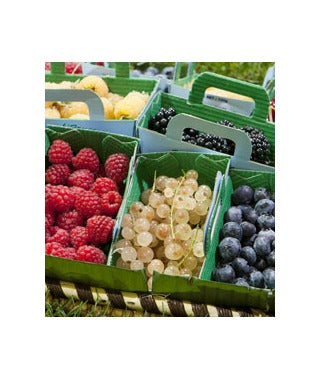There are three primary types of antioxidants found in nature. These include phytochemicals, vitamins, and enzymes. Most of the most powerful antioxidants are found in plants. This is due to the fact that plants are exposed to UV light all throughout the day.
Because plants generate a large number of free radicals, they have a natural built-in protection system that prevents the free radicals from causing the cellular damage that would eventually result in the plant withering and dying. This protection comes from naturally-occurring antioxidants.
Antioxidant Enzymes
Enzymes are types of antioxidants that come from the protein and minerals we eat as part of our daily diets. These enzymes are synthesized in the human body, and include superoxide dismutase (SOD), glutathione peroxidase, glutathione reductase, and catalases.
In order for antioxidant enzymes to provide optimum antioxidant activity, they require co-factors such as iron, copper, selenium, magnesium, and zinc. The quality of the protein source does have an impact on the quality of the antioxidant enzymes.
Antioxidant Vitamins
The human body does not produce antioxidant vitamins naturally, so it is essential to include dietary sources of them in our daily intake of food, be it through foods or supplements. Common antioxidant vitamins include vitamins A, C, E, folic acid, and beta-carotene.
Vitamin A is particularly important for improving the immune system, eye health, tissue repair, and cholesterol levels. Hawaiian Spirulina is rich in vitamin A. Vitamin C helps to protect the skin from UV damage, promotes better iron absorption, provides greater resistance to infections, and helps to regulate blood cholesterol. Vitamin E is important for maintaining healthy blood vessels, improving skin conditions, and protecting the body's membrane. Meanwhile, folic acid is important to women of childbearing years, particularly in preventing the development of neural tube defects in the fetus.
Beta-carotene is a powerful carotenoid (which is a type of phytochemical) that is considered to offer the best protection against singlet oxygen and free radicals. This vitamin is most commonly found in orange-colored vegetables like carrots, pumpkins, and sweet potatoes, and dark green vegetables like spinach, kale, and collards.
Coenzyme Q10 (or CoQ10), is a vitamin-like substance produced by the body that has been shown to be a necessary component in the basic functioning of cells. The production of this substance does decrease naturally as we age, and its reduction has been linked to the development of various age-related diseases and conditions.
Antioxidant Phytochemicals
Phytochemicals are the antioxidants that are naturally used by plants to protect themselves against free radicals . Studies show that humans who eat sources of phytochemicals also benefit from the antioxidant properties of the plant. Phytochemicals are broken down into the following categories:• Carotenoids
• Flavonoids
• Allyl sulfides
• Polyphenols
Most natural whole foods, such as whole grains, fruits, and vegetables, contain phytochemicals, whereas processed or refined foods contain little to no phytochemicals.
Disclaimer:
The information provided is for educational purposes only and does not constitute medical advice. Always seek the advice of your physician or qualified healthcare provider with any questions or concerns about your health. Check with your doctor before beginning any exercise program. Never disregard or delay seeking medical advice because of something you have heard or read in this article or the internet.

